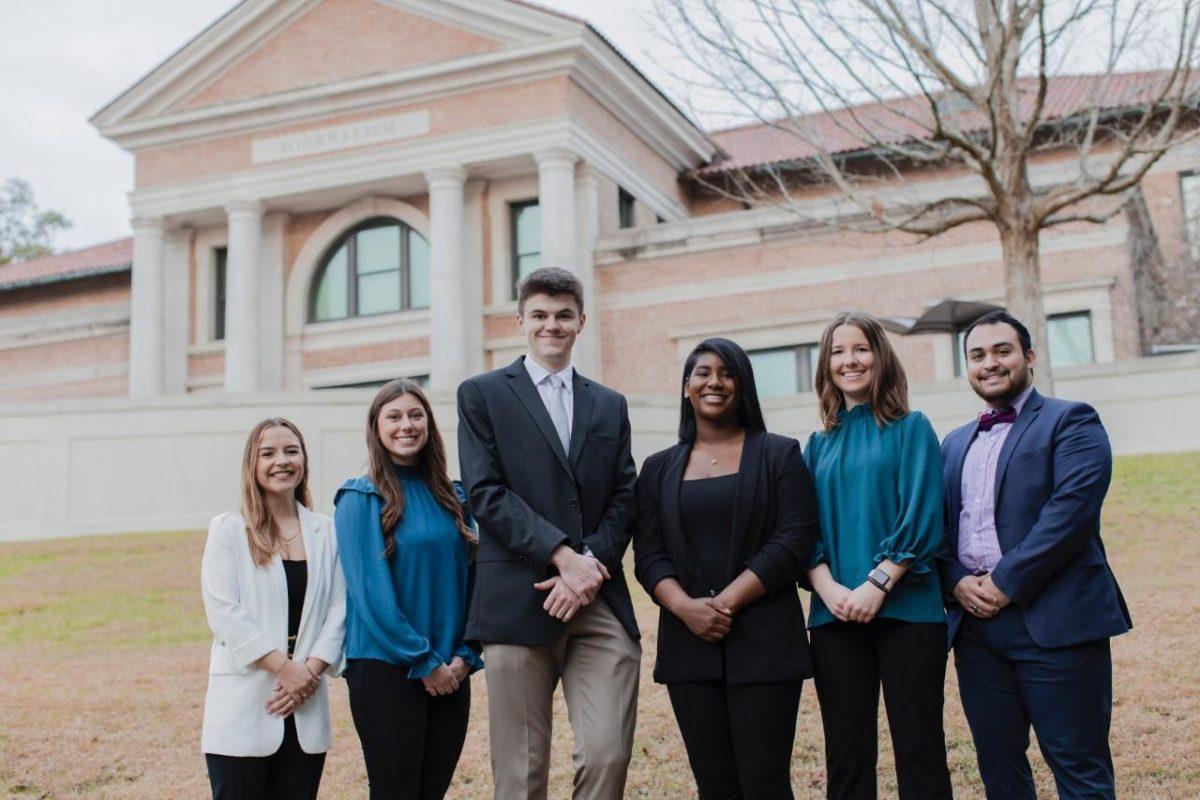A team of LSU students are competing in a national public relations competition, aiming to increase news literacy through their project.
The students are competing against 75 other universities in the annual Bateman Case Study Competition, held by the Public Relations Student Society of America, where teams apply their skills to create a full PR campaign.
LSU’s team is building a campaign for the News Literacy Project, a nonprofit that aims to educate people on how to assess if information is credible.
The team captain, public relations senior Emmie Ravain, said the competition gives them hands-on experience in PR.
“I think the biggest benefit for me is taking what you learn in the Manship School and actually implementing it into the campaign,” Ravain said. “We’re going to use these skills for the rest of our lives, and I feel even more prepared going into the workforce next year by actually seeing how we take these skills and seeing the direct results of them.”
The LSU team took first place in the competition in 2018. Ravain said she’s hoping to place in the finals and help spread the awareness of news literacy.
Ravain said she first learned about the LSU’s Bateman team during her sophomore year and that she was always interested in getting involved. She was also inspired by her mother, who placed second in a similar Manship competition at LSU.
“I’m so thankful that the team trusts me with this role,” Ravain said. “I love all things organization, event planning and implementing all of the PR tools that we’ve learned here at the Manship School, so it’s a great opportunity.”
Mass communication professor Doug Draper has served as LSU’s Bateman team faculty advisor for three years. He said he has one more year left before closing the chapter.
“It’s always fun and a lot of hard work, but it’s a great challenge while working with the best students of the Manship School and the public relations area to do something extraordinary, so it’s been a lot of fun for me,” Draper said.
Draper said the biggest part of leading a successful team is selecting the right people. He said deciding who to keep is always a hard choice, but when it comes down to it, he picks the people who will best help LSU gain another title.
“I’m extremely confident this team can win it all. They’ve got a great plan, they’ve been working hard,” Draper said. “We started with the research process back in October, and we haven’t really stopped working since. All I can say is that if you look for Bateman team on somebody’s application, you’re looking at one of the best students you’re going to find coming out of college.”
Sasha Bourne, a public relations senior on the Bateman team, said she joined the team after hearing Draper talk about it during a class, she took with him during the fall semester.
Bourne felt the team would be an opportunity to strengthen the skills she’s learned at Manship.
“I think it’s a great opportunity to leave a legacy here at LSU, so after I graduate that will be like a piece of something I can look back on and say I achieved,” Bourne said.
Bourne said this campaign is not just for LSU students, but for all to understand the importance of news literacy.
“News literacy is important because it affects your daily life, it affects the way you view the world,” Bourne said. “If you have the skills you need to consume news, you’ll be less likely to fall victim to fake news and you’ll be a little bit more knowledgeable about how to interact with certain things.”
Public relations senior Sebastian Canales is also a member of the Bateman team and said he loves putting his skills to good use.
“I have a love for public relations and being able to help a non-profit out,” Canales said.
Canales said misinformation is a constant threat to democracy and it’s important for the public to be educated on news literacy. That’s where the name of their campaign – “Information is Power: Plug In” – came from, he said.
“The whole point of our campaign is to really let people know who the News Literacy Project is, what they do, as well as teaching the public skills to decipher fake news,” Canales said. “Being able to go talk to someone that doesn’t know exactly what news literacy is or who the News Literacy Project is, and being able to educate them is something that is really rewarding.”






